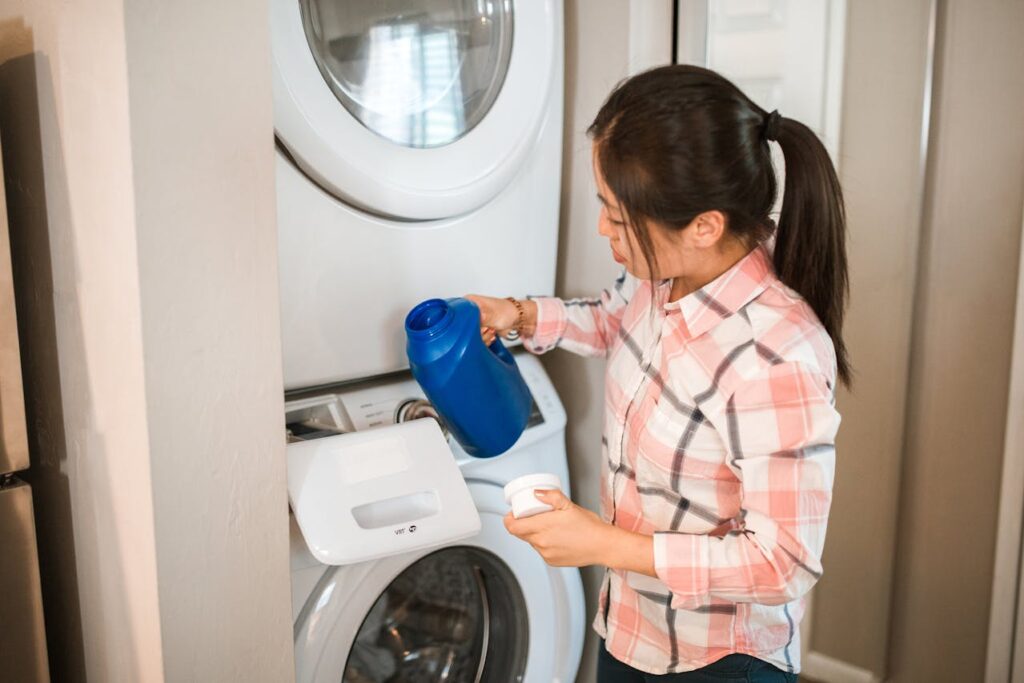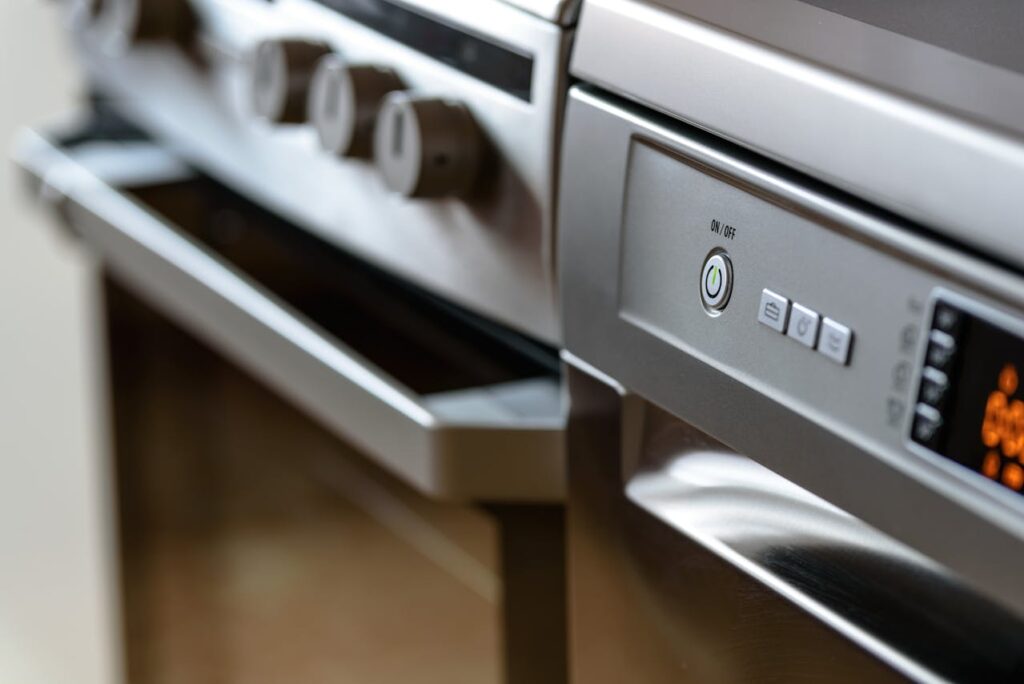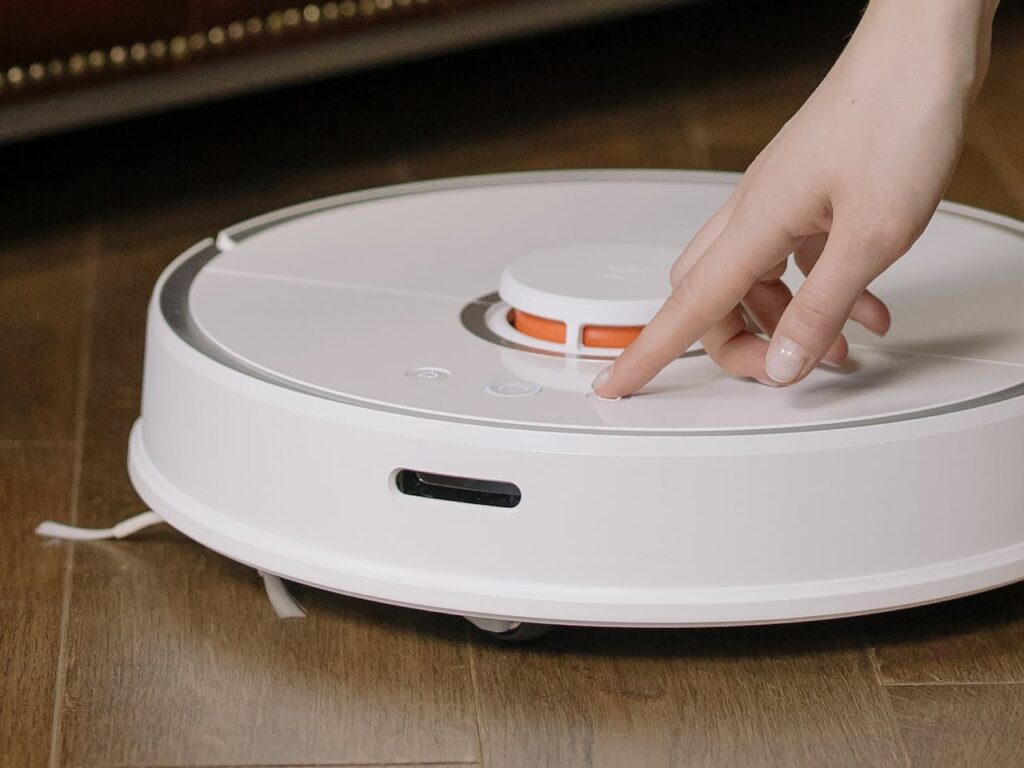Home appliances are those helpful teammates in our daily lives. From the fridge that keeps our food fresh to the washing machine that handles our laundry, these machines work hard every day.
But just like any team member, they need a little care to keep doing their job well.
The good news? Taking care of your appliances doesn’t have to be hard or expensive.
In fact, with a few smart habits, you can make them last longer—and save money along the way. Let’s look at some simple ways on how to extend the life of your home appliances to keep them running strong.
Key Takeaways
- Clean regularly – Dust, dirt, and leftover crumbs can make machines work harder than they need to. A quick clean now and then keeps things running smoothly.
- Follow the instructions – Always read the manual (or at least skim it!). Using appliances the right way helps them last longer and work better.
- Don’t overload – It might be tempting to stuff the washer or dishwasher full, but too much at once can strain the machine.
- Check and fix small issues early – A weird noise or slow performance can be a sign something’s wrong. Catching it early can stop a bigger problem later.
- Give them space – Make sure your appliances have enough room to breathe. Good airflow helps prevent overheating and keeps things safe.
Why Do Appliances Fail Prematurely?
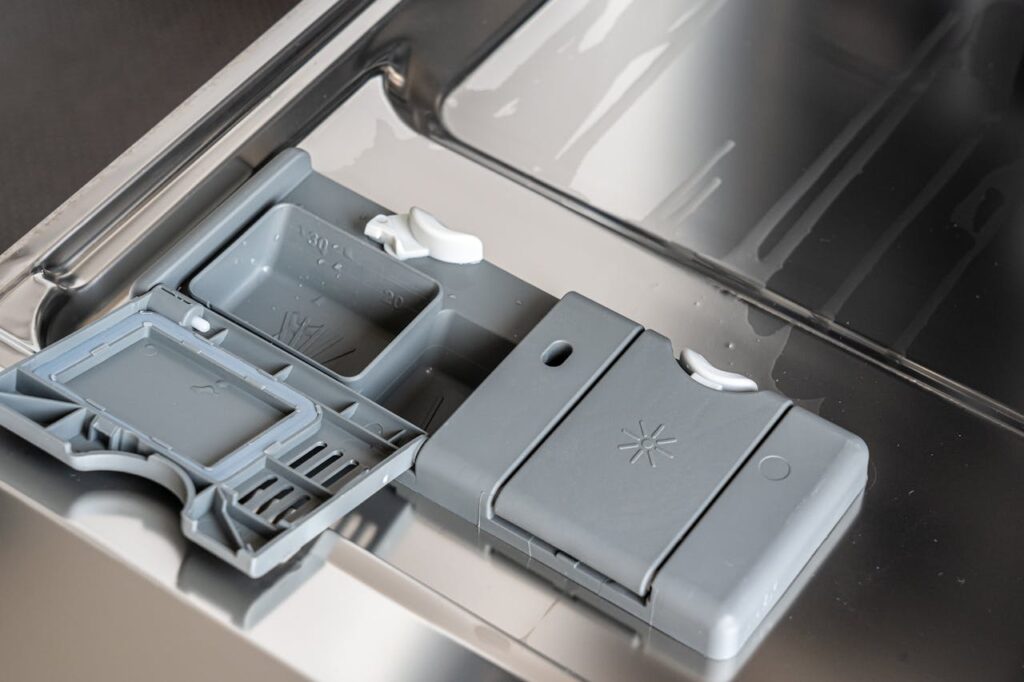
Why do some appliances break down sooner than expected? It’s a good question! Appliances don’t just stop working for no reason. Usually, there are a few common causes behind their early failure.
Here are some of the top reasons why:
1. Lack of Cleaning and Maintenance
Imagine running a race while wearing muddy shoes—that’s what it’s like when appliances get dirty inside. Dust, food crumbs, and grime can build up and slow parts down. Over time, this makes the machine work harder than it should. When things get clogged or sticky, appliances wear out faster.
For example, a dryer with a clogged lint filter has to work extra hard to dry clothes. That extra effort can cause parts to break sooner.
2. Using Appliances the Wrong Way
Every appliance has a “right way” to use it, kind of like following a recipe when you bake. If you don’t follow the instructions, things can go wrong. Overloading a washing machine or running a fridge with the door open for too long can cause stress on the parts inside.
Think about it this way: if you try to carry too many grocery bags at once, you might drop one. Appliances can get “dropped” too, but in their case, it means parts wear down or break.
3. Ignoring Small Problems
Sometimes appliances make weird noises or don’t work quite right. These are like little warning signs. If you ignore them, the problem can get bigger. Fixing a small issue early is like putting a bandage on a scrape—it stops things from getting worse.
4. Poor Installation or Placement
Where and how you set up your appliance matters a lot. For example, if your fridge is too close to a hot stove, it has to work harder to stay cool. Or, if your dishwasher isn’t level, it might not drain properly. These small mistakes can cause damage over time.
5. Wear and Tear Over Time
Finally, some parts just wear out naturally, like shoes getting holes after lots of walking. But if you combine wear and tear with the problems above, appliances fail much faster than they should.
With a better understanding these reasons, you can start to see how small changes in how you care for your appliances can make a big difference.
Now, let’s move on to some steps to keep your machines in top shape for years to come!
23 Tips on How to Extend the Life of Your Home Appliances
Taking care of your home appliances is a little like caring for a garden. If you water the plants, pull the weeds, and give them sunlight, they grow strong. Appliances need attention too.
With a few simple steps, you can keep them running well and make the life of your appliances much longer.
Let’s walk through some easy tips on how to extend the life of your home appliances to help you out.
1. Clean Your Dryer Vent Every 6 Months
Your dryer vent is the tube that carries hot air out of the dryer. Over time, lint can build up in there, kind of like dust bunnies hiding in a tunnel. This buildup not only makes your dryer work harder, but it can also be a fire risk.
Clean the vent at least twice a year. Just unplug the dryer, disconnect the vent, and use a vacuum or cleaning brush. Your clothes will dry faster, and your dryer will last longer!
- Unplug the dryer before cleaning for safety.
- Pull the dryer away from the wall to reach the vent.
- Use a vacuum or vent brush to remove lint from the duct.
- Check outside where the vent exits—make sure it’s clear too!
2. Descale Your Dishwasher Monthly with Vinegar
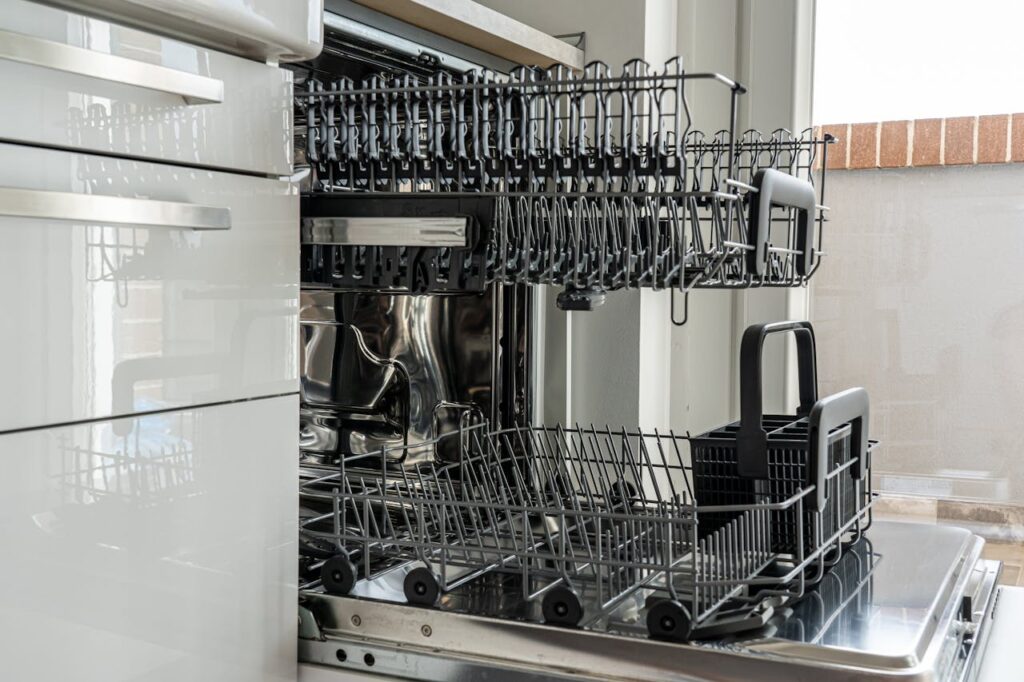
Dishwashers get dirty too, even though they rinse dishes! Hard water can leave behind a chalky layer called scale. This buildup clings to parts inside and can shorten your dishwasher’s lifespan.
Once a month, place a cup of white vinegar on the top rack and run a hot cycle with no dishes inside. It’s like giving your dishwasher a spa day! This keeps it cleaner and helps prevent clogs caused by food particles and food debris.
- Pour 1 cup of white vinegar into a dishwasher-safe bowl.
- Place the bowl on the top rack and run a hot cycle.
- Skip detergent or dishes during this clean cycle.
- Wipe around the door edges to catch hidden grime.
3. Wipe Refrigerator Coils Twice a Year
Behind your refrigerator, there are condenser coils. These coils help remove heat so your fridge can stay cold. But when they get dusty, they can’t do their job well.
Use a vacuum or a dry sponge to clean the coils about every six months. Don’t forget to unplug the fridge first! Clean coils mean your fridge doesn’t have to work overtime, which helps protect the longevity of your appliance.
- Unplug the fridge before you start.
- Use a coil brush or vacuum to remove dust and pet hair.
- Coils are usually behind or underneath—check your manual.
- Clean slowly to avoid bending or damaging the coils.
4. Replace HVAC Filters Every 90 Days
Your heating and cooling system pulls in air through a filter. That filter catches dust, dirt, and even pet hair. But if it gets too full, the system has to work harder.
Changing the filter every three months is a simple way to help your HVAC system last longer. It also keeps your home’s air cleaner, which is a nice bonus.
- Turn off the system before changing the filter.
- Check the filter size and type before buying a new one.
- Slide out the old filter and insert the new one the same way.
- Write the date on the filter so you remember next time.
5. Avoid Overloading Your Washing Machine
It’s tempting to toss in a huge load of laundry to save time. But stuffing too many clothes in at once puts stress on the motor and the spinning parts.
Think of your washer like a merry-go-round. If too many people climb on, it gets wobbly. Give your washing machine room to spin freely, and use the right amount of detergent to avoid extra suds and buildup.
- Leave space on top—clothes should move freely.
- Mix heavy and light items for better balance.
- If your washer thumps or shifts, it may be too full.
- Overloading wears out the motor and shortens machine life.
6. Use Surge Protectors for Electronics and Small Appliances
A surge protector is like a bodyguard for your gadgets. It helps protect things like your microwave, oven, and TV from sudden bursts of electricity.
These power spikes can happen during storms or when too many appliances turn on at once. Plugging into a surge protector can help avoid damage and add years to the life of your appliances.
- Plug TVs, computers, and game systems into surge protectors.
- Choose a protector with a light or alarm to show it’s working.
- Replace it after any major power surge or lightning storm.
- Never plug big appliances like fridges into surge strips.
7. Empty Your Vacuum Canister Frequently
When the vacuum’s canister is full, it can’t suck up dirt as well. It’s like trying to breathe through a straw that’s blocked! Empty it when it’s about two-thirds full. This helps the motor stay strong and your floors stay cleaner.
Give the filter a shake too, and wipe the outside with a damp cloth now and then. That’s easy regular maintenance that helps your vacuum last longer.
- Dump out dirt when it’s about two-thirds full.
- Tap the filter gently to shake out extra dust.
- Wipe inside the canister with a damp cloth.
- A clean vacuum means stronger suction and a longer life.
8. Check Oven Door Seals for Tight Closure
Your oven needs to hold heat inside to cook food properly. If the door doesn’t close all the way, the oven has to work harder—and that uses more energy. The rubbery strip around the door is called a gasket. If it’s loose, cracked, or dirty, the oven may lose heat.
Check the gasket now and then. If it’s sticky or covered in crumbs, wipe it clean. If it’s damaged, it might be time to replace it.
- Look for cracks or looseness in the rubber gasket.
- Gently clean it with warm soapy water if dirty.
- Close the door and see if it seals tight all the way around.
- Replace the seal if you feel heat escaping while baking.
9. Unplug Unused Appliances to Prevent Wear
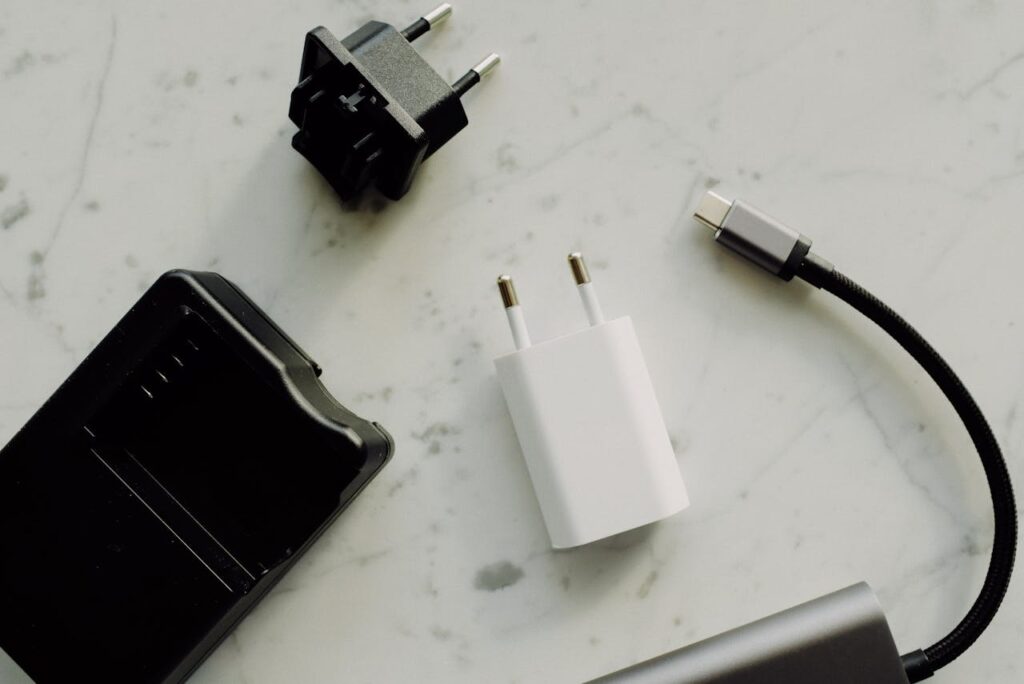
Even when you’re not using them, plugged-in appliances can still use a tiny bit of power. Over time, this can wear out their parts. It’s kind of like leaving your car engine running when it’s parked—it’s not helpful and wastes energy.
If you don’t use something often, like a blender or toaster, unplug it. It’s a small step that protects the appliances and systems in your home.
- Unplug toasters, blenders, and coffee makers when not in use.
- Less energy draw means less wear on wires and circuits.
- Use a power strip to switch off multiple items at once.
- Unplugging also protects from surprise power surges.
10. Run Your Washing Machine Empty with Vinegar Once a Month
Your washer might clean clothes, but it needs cleaning too! Soap scum and gunk from dirty clothes can build up inside. This can lead to mold and a yucky odor.
Once a month, run a hot cycle with no clothes and add two cups of white vinegar. This helps freshen the machine and keep it running well. It also helps your washer smell fresh—no one likes stinky laundry day!
- Pour 2 cups of white vinegar directly into the drum.
- Use the hottest water setting for a deep clean.
- Don’t add clothes or detergent—just let it run.
- This helps clear out buildup and removes odors.
11. Clean the Lint Trap Before Every Dryer Use
This one’s quick but super important. The lint screen catches tiny bits of fabric from your clothes. If it gets clogged, hot air can’t flow properly. That makes drying take longer—and can even be a fire hazard.
Before every load, pull out the dryer’s lint screen and remove the fuzz. It takes just a few seconds, but it keeps your dryer safe and helps it work better.
- Pull out the screen and remove lint with your fingers.
- Rinse the screen every few weeks to remove fabric softener residue.
- Make it a habit—do it right before pressing start.
- A clean trap helps the dryer work faster and safer.
12. Don’t Slam the Fridge Door—Close It Gently
It might feel satisfying to give the fridge door a good push, but slamming it can damage the seals and hinges over time. A gentle close is best.
The rubber lining around the door keeps cold air inside. If that seal wears out, your fridge has to work harder to stay cool. That’s not great for energy use—or your groceries.
- Slamming can damage hinges and seals.
- Use your hand to guide the door shut softly.
- Teach kids to listen for the gentle “click” of a closed door.
- A snug seal keeps cold air in and energy bills down.
13. Keep Microwave Vents Clear of Grease
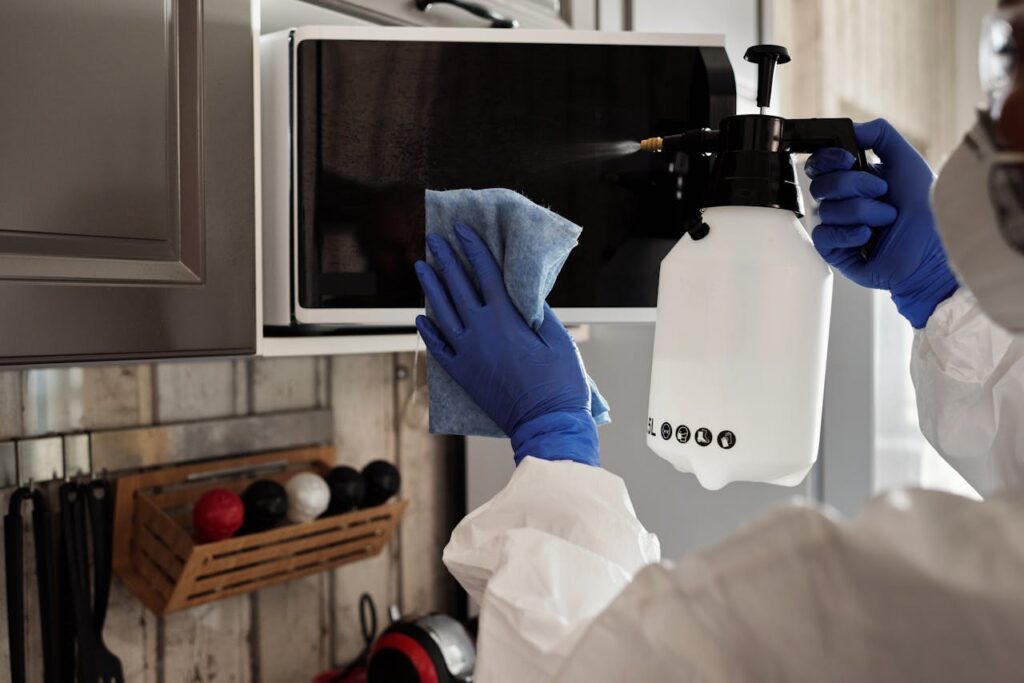
The microwave has small vents that help keep it cool. But when grease and steam build up, those vents can get blocked. That makes the microwave overheat, which shortens its life expectancy.
To prevent this, wipe the outside and vent areas with a damp cloth every few months. This helps keep air flowing so your microwave doesn’t overwork itself.
- Check the top and back of the microwave for vent holes.
- Wipe them down with a damp cloth or vinegar spray.
- Clean grease filters if your microwave has a fan hood.
- Blocked vents can make the microwave overheat.
14. Tighten Loose Screws on Appliances Often
You might not notice them, but many appliances have small screws that hold things in place. Over time, these screws can loosen from regular use. A loose screw might not seem like a big deal—until something starts rattling or stops working.
Take a few minutes now and then to check for wobbly handles, shaky parts, or doors that don’t close quite right. Tightening screws helps prevent bigger problems down the road and helps your appliances last longer.
- Grab a screwdriver and do a quick check every few months.
- Focus on handles, doors, knobs, and control panels.
- Tight screws prevent rattling and longer-term damage.
- Don’t overtighten—just enough to keep things snug.
15. Balance Washer Loads to Prevent Shaking
Ever hear your washing machine dance across the floor during a spin cycle? That’s usually because the load is off-balance. When one side is heavier than the other, the drum can shake hard. This puts stress on the motor and other parts.
To fix this, spread your laundry evenly in the drum. If you’re washing just a few items, try adding a towel to help balance the weight. A balanced load keeps the washer calm—and helps it last as long as possible.
- Spread clothes evenly around the drum before starting.
- Add towels to even things out if the load feels lopsided.
- An unbalanced washer can thump loudly or walk across the room!
- Balancing protects the motor and reduces wear.
16. Use the Right Detergent for Each Machine
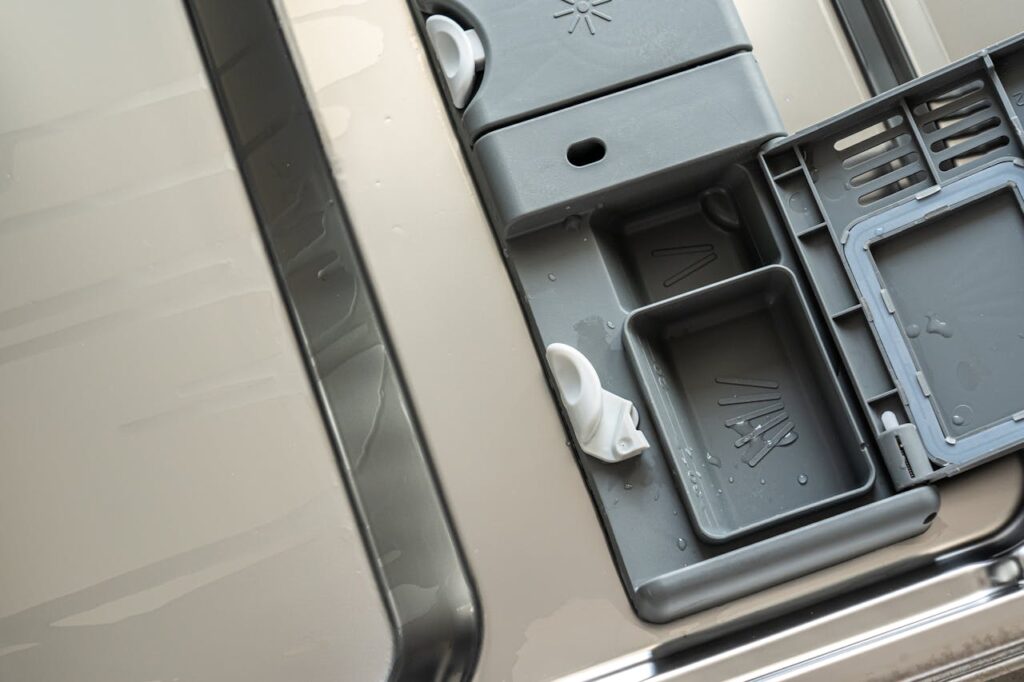
Different machines need different soaps. For example, high-efficiency washers need low-suds detergent. Using the wrong kind can lead to too many bubbles, which causes buildup and clogs inside.
Check the label on your detergent, and make sure it matches your machine. The right soap means cleaner clothes and a healthier machine. Think of it like using the right fuel for your car—it just works better.
- Check your washer’s manual for the correct type.
- High-efficiency machines need HE detergent—less suds!
- Using too much soap can cause buildup and bad smells.
- Match the detergent to the machine for better results.
17. Defrost Freezers If Ice Gets Over ¼ Inch Thick
A little frost is okay, but too much can be a problem. If you see ice thicker than a quarter inch inside your freezer, it’s time to defrost. That thick layer makes it harder for your freezer to stay cold, and it uses more energy.
Unplug the freezer, take the food out, and let the ice melt. Wipe it down, then plug it back in. This easy task helps your freezer stay strong until the end of life—which hopefully won’t be for a long time!
- Unplug the freezer and remove all food.
- Let the ice melt or speed it up with bowls of hot water.
- Wipe dry before turning the freezer back on.
- Thick ice makes the freezer work too hard.
18. Keep Your Fridge at 35–40°F Always
Your refrigerator works best when the temperature is just right—not too cold, not too warm. The sweet spot is between 35 and 40 degrees Fahrenheit. That keeps your food fresh and prevents the fridge from working harder than it needs to.
Also, check the seal between the door to make sure it’s tight. If cold air leaks out, the fridge has to work extra hard, which wears it out faster.
- Use a fridge thermometer to check the temperature.
- Adjust the dial inside if it’s too cold or warm.
- This range keeps food fresh without freezing.
- A stable temp also keeps the compressor happy.
19. Don’t Run Appliances on Low Voltage
Appliances need steady power to work right. If the electricity is too low—like during a storm or when too many things are plugged in—they can get damaged. Think of it like trying to ride a bike up a hill with flat tires. It puts extra strain on the motor.
If you notice flickering lights or your machines seem slow, wait until the power is steady again. This small habit can help your machines last longer and avoid costly repairs.
- Avoid using large appliances during brownouts or storms.
- Low voltage makes motors strain and shortens lifespan.
- Wait until power is stable to run washers or dryers.
- Use a surge protector or voltage monitor if needed.
20. Clean Range Hood Filters Monthly
The range hood is the fan above your stove. It pulls out smoke, steam, and grease while you cook. But that grease doesn’t disappear—it collects in the filter!
To clean it, remove the filter and soak it in hot, soapy water. If it’s extra dirty, use white vinegar to remove the grease. You can even sprinkle some baking soda in the water to help break up the grime. Clean filters keep the fan working well and prevent greasy smells from building up in your kitchen.
- Remove metal filters and soak them in hot, soapy water.
- For greasy filters, sprinkle baking soda before scrubbing.
- Rinse and dry fully before putting them back.
- A clean hood pulls steam and smells out more effectively.
21. Check Washer Hoses for Leaks Once a Year
Behind your washing machine are rubber hoses that carry water in and out. Over time, these hoses can crack or wear out. If they leak, you could end up with water on the floor—or worse.
Take a few minutes once a year to check the hoses. Look for cracks, bulges, or wet spots. If anything looks wrong, replace the hose before it breaks. A quick check now can save a big mess later!
- Look behind the washer for wet spots or bulging hoses.
- Turn off the water and feel the hose for weak spots.
- Replace hoses every 3–5 years just to be safe.
- Use stainless steel braided hoses for extra strength.
22. Leave the Washer Door Open After Each Use
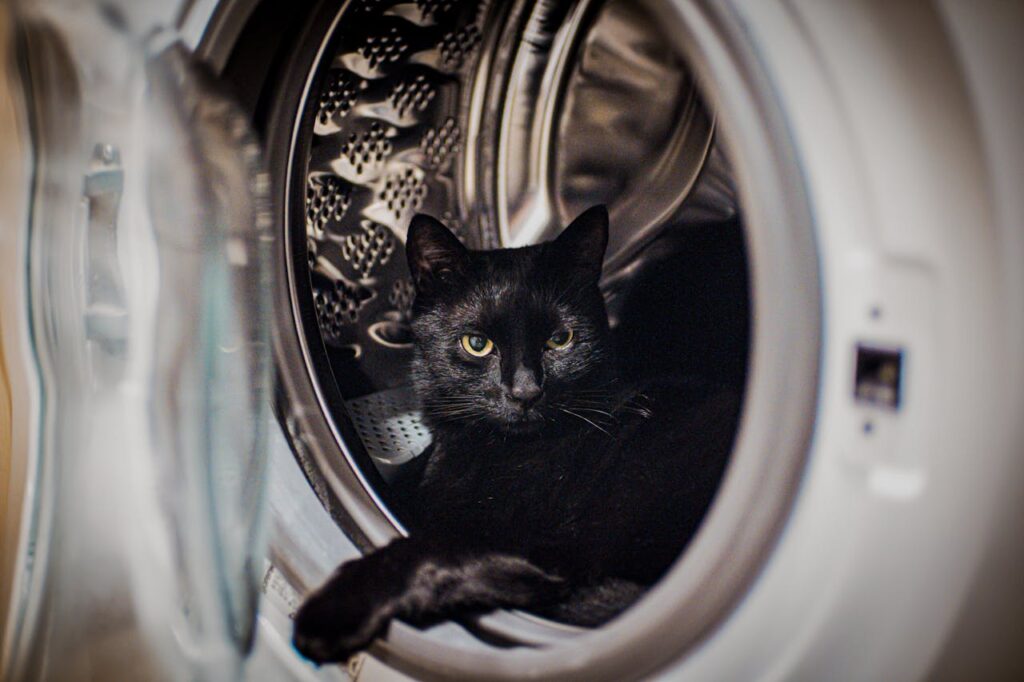
When you’re done washing clothes, leave the washer door open for a while. This helps air out the inside and keeps things dry. If you close it right away, moisture can get trapped. That leads to a musty smell and even mold.
Letting air in stops that from happening. You can also wipe the rubber seal with a soft cloth to keep it clean and dry.
- A slightly open door lets the inside dry out.
- Prevents mold and mildew from growing in the drum.
- Wipe the rubber seal with a soft towel if it’s damp.
- A fresh-smelling washer starts with a dry one!
23. Keep Appliances Level to Reduce Strain
Appliances like washers, dryers, and refrigerators should sit flat on the floor. If they tilt or wobble, they don’t work as well. The motors can strain, and parts may wear out faster.
Use a level to check, and adjust the feet underneath if needed. When things are balanced, they run smoother—and they last longer too.
- Use a level tool to check if your washer or fridge tilts.
- Adjust the feet underneath until they sit flat.
- A level appliance works better and shakes less.
- Fewer vibrations means fewer long-term problems.
Conclusion
Keeping your appliances in good shape isn’t limited to avoiding big repair bills. It’s also about making your home run more smoothly.
When your machines work well, life is a little easier—and that’s something we can all appreciate. By cleaning them regularly, using them properly, and fixing small problems early, you can help your appliances last for years.
Think of it like brushing your teeth—just a little effort each day keeps things in great shape.
So, take care of your appliances with these tips on how to extend the life of your home appliances, and they’ll take care of you!
FAQs
1. What is the 50 50 rule for appliances?
The 50/50 rule says if a repair costs more than 50% of a new appliance—and it’s halfway through its lifespan—it’s usually better to replace it.
2. How long should household appliances last?
Most last 10–15 years with good appliance maintenance. Your fridge, washer, and oven can last longer if you follow care and maintenance tips regularly.
3. Is it worth repairing 20 year old appliances?
Usually not. If an appliance is 20 years old, it’s near the end of life. Parts may be hard to find, and it may cost more to fix than to replace.
4. How to prolong the life of your refrigerator?
To extend its lifespan, clean the refrigerator condenser coils, set the right temperature (35–40°F), and wipe the plastic strip around the door.
5. What are some easy ways to extend appliance life?
Start with basic appliance care: wipe the coils, keep your refrigerator level, and don’t overload your washer and dryer. Small steps matter!
6. How can cleaning your dishwasher help?
Cleaning your dishwasher monthly removes buildup and food debris. Use white vinegar to remove grime and help it clean your dishes better.
7. Why does my dryer take so long to dry clothes?
If your dryer takes longer, lint buildup might force your dryer to work harder. Clean the lint trap before every load and make sure your dryer vent is clear.
8. Can using the self-clean setting harm my oven?
Yes, if used too often. Using the self-clean setting too much can strain the motor or cause parts to wear faster. Use it sparingly and follow safety tips.
9. What’s the best way to clean a dishwasher?
To clean a dishwasher, remove the filter, rinse it, then run a hot cycle with vinegar. This keeps appliances clean and odor-free while they clean your dishes.
10. What does a home warranty cover for appliances?
A home warranty can help repair or replace covered appliances and systems. It’s useful if you want backup protection when something stops working properly.

